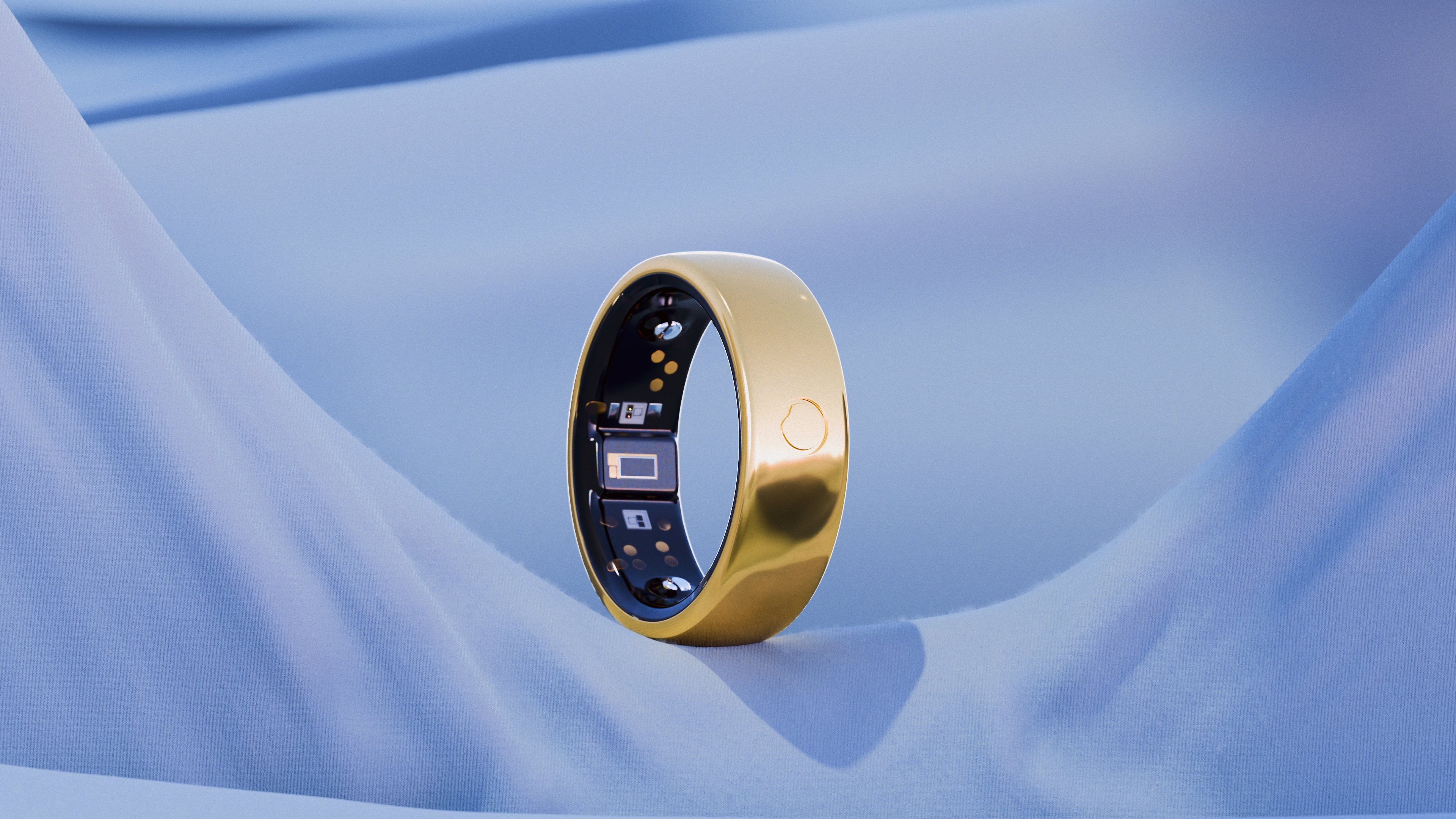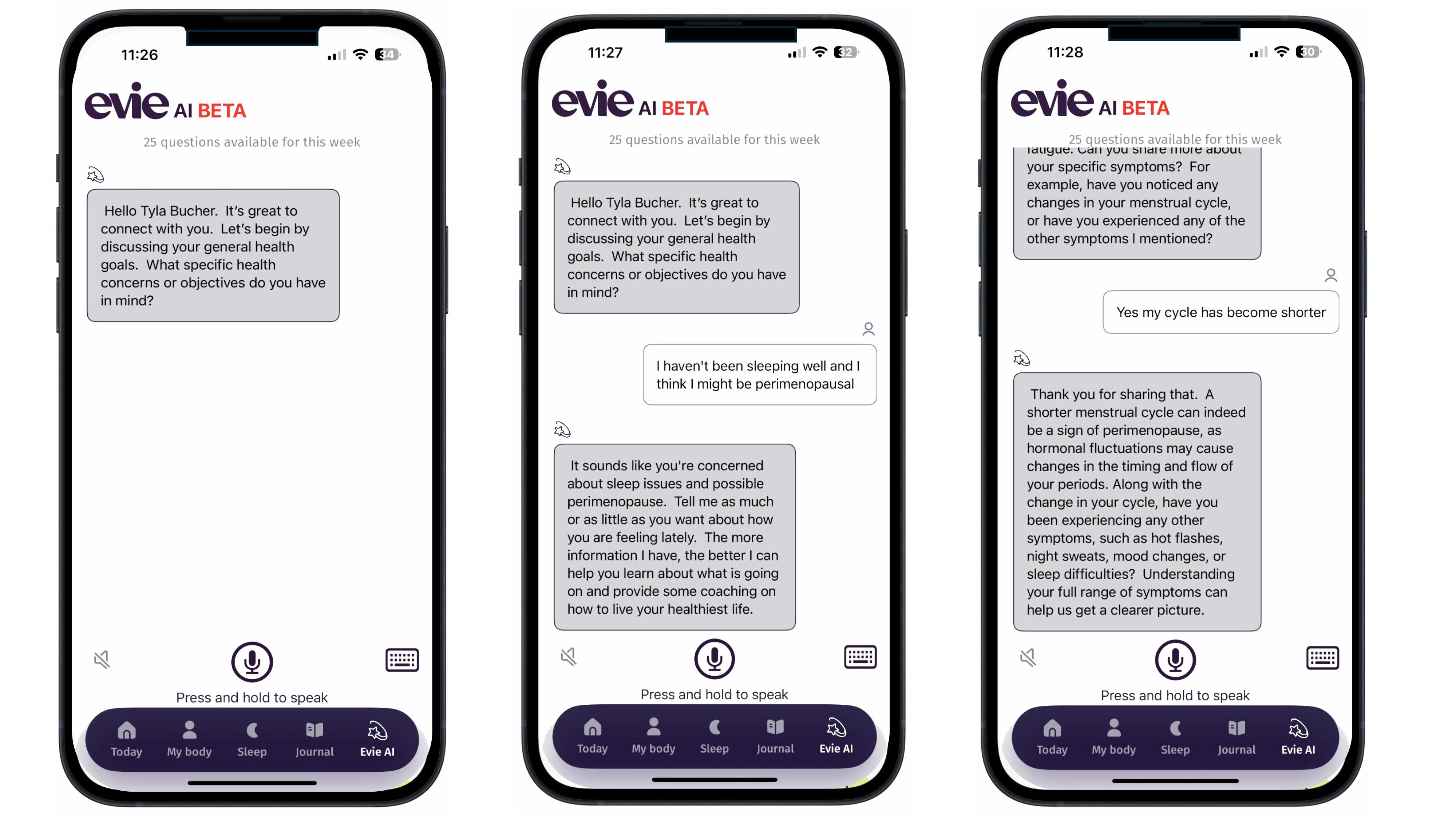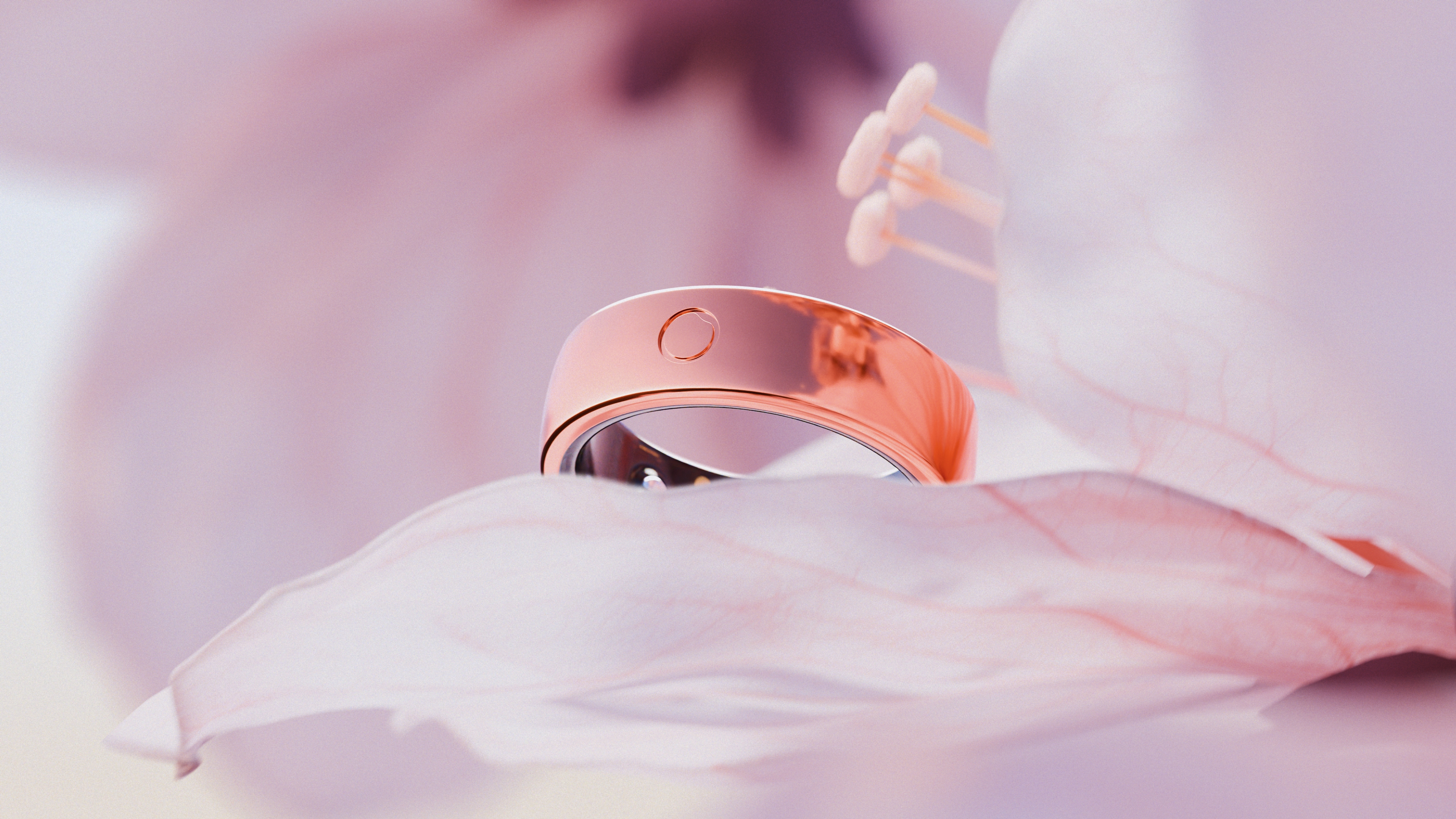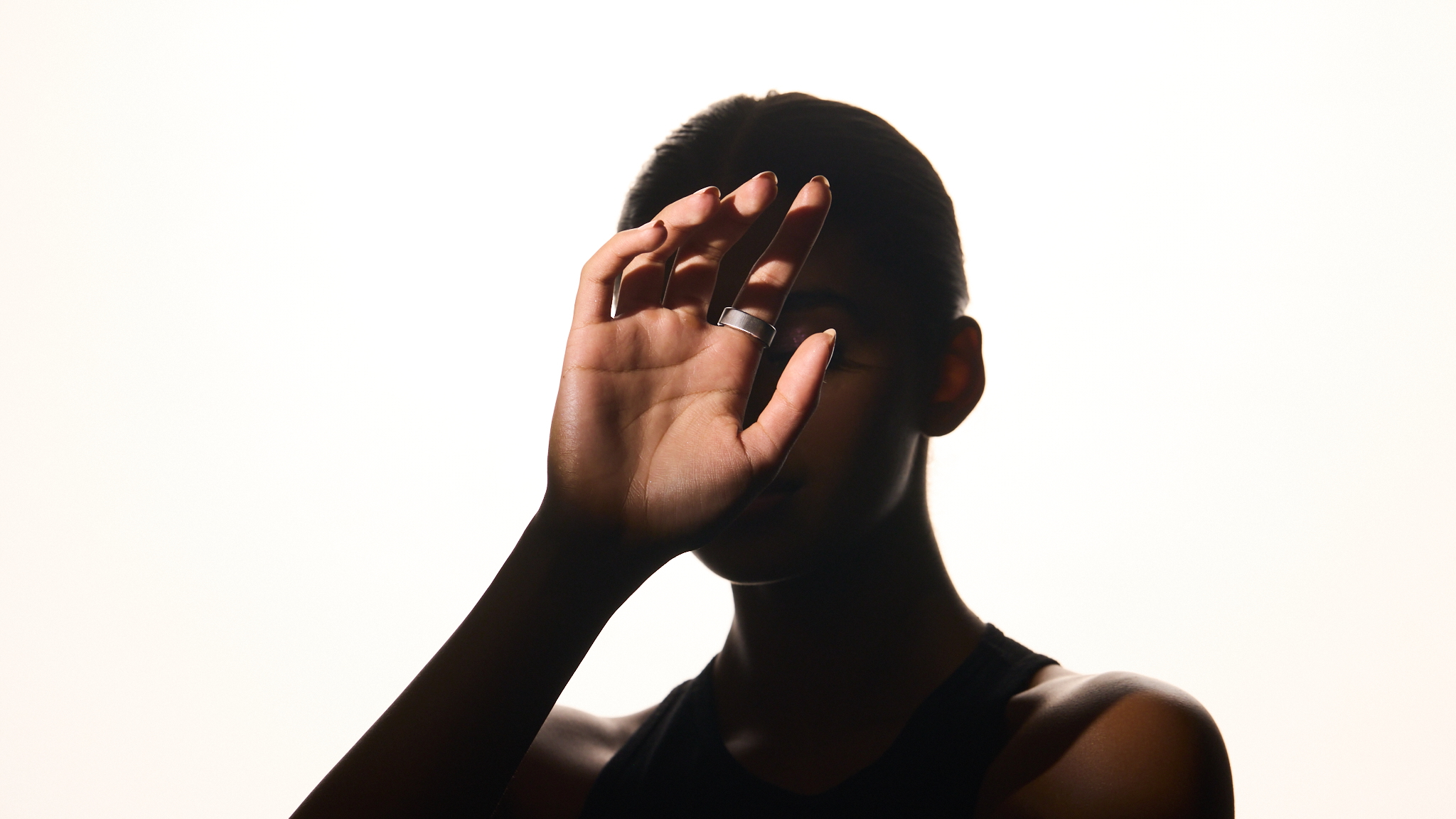We saw three potential futures for smart rings at CES
Ultrahuman, Circular, and Evie showed different paths smart rings could take to become more relevant in the wearable space.

Smart rings took the tech world by storm last year, but they're still relatively niche in terms of global sales. Samsung aside, most smart ring brands are fledgling startups, all trying to make a name for themselves in a Wild West industry. There's no template for the "right" way to make smart rings.
So it's no surprise that we saw a wide range of smart ring solutions at CES 2025, showing brands like Ultrahuman, Circular, and Evie throwing their darts at the board and seeing what will stick with consumers.
We interviewed several smart ring CEOs around CES, including Oura's Tom Hale, and got some valuable insights into how they hope to rebrand smart rings, whether it be medical tracking, AI insights, or luxury jewelry. And it'll be fascinating to see which angle pays off.
Proactive AI insights into bodily trends
Smart rings collect a ton of information on your sleep quality and heart rate, with generic explanations for why you might get a bad score. Movano Health, which sells the petite Evie smart ring for women, is looking to use "EvieAI" to improve the actionable insights you get from your data.
Announced at CES 2025, the EvieAI Virtual Wellness Assistant "generates clear and concise answers based on articles that have been published in over 100,000 medical journals...to interpret complex user queries about almost any symptom, disease, condition, or procedure."
CEO John Mastrototaro, whom we interviewed about the announcement, explained that because the AI can "only respond with what it knows" from "validated medical information," cross-references with sources like Mayo Clinic for the best answers — while ignoring any non-medical questions.
He also promised that your questions will remain private, with no information sent back to Movano Health to be sold to advertisers.
Be an expert in 5 minutes
Get the latest news from Android Central, your trusted companion in the world of Android

While this initial version of EvieAI is a more generic kind of chatbot search engine for medical info, the company promises that future EvieAI responses will be "personalized based on users' own health metrics, including heart rate, blood oxygen, menstrual cycle information, skin temperature variability, sleep, exercise, and mood."
This is something that the Oura Ring 4 can already do to some extent with its AI chatbot, and it's that version of EvieAI that sounds the most promising for the future of smart rings, where an AI is "looking at all that data, and if it sees something changing in your trends...it could bring that to your attention," explained Mastrototaro.
Many of the best smart rings call attention to negative trends, but a medically-focused AI chatbot could, in theory, provide more personalized and specialized insights into that data than what's currently available. Whether EvieAI can deliver "99.9% accurate" data on the strength of its sources, as Mastrototaro suggests, will be worth investigating.
Transitioning from 'wellness' to 'health' tracking
One of the biggest CES smart ring announcements was the Circular Ring 2. While the original Circular Ring was thin and flat-edged with a relatively short battery life, the Ring 2 has a more traditional rounded ring shape, an 8-day battery life, and an "FDA-approved" ECG sensor to actively detect possible AFib, tachycardia, and brachycardia.
"All of these [smart ring] brands compete for something very similar, and it's very hard for consumers to differentiate when we're all offering the same thing," explained Circular CEO Amaury Kosman during a CES interview. Transitioning from traditional "wellness" features like sleep and stress to actual health and medical information is how they plan to stand out from the crowd and attract B2B sales.

Adding the ECG meant abandoning Circular's trademark haptics for notifications and alarms, but Kosman sees medical accuracy as the priority until they can fit both in one ring.
Circular wants to turn its smart rings into an at-home alternative for "expensive" and "invasive" medical checks at the doctor's office, giving you actionable information so you're armed with knowledge before you go to the doctor. ECGs are the start, Kosman says, with future features like "blood pressure" and passive AFib detection being worked on.
While many smartwatches have FDA-approved AFib detection, most stop there, only promising a "wellness" check-in area like blood oxygen. Smart rings, which can promise a more exact fit on your finger, seem to be pivoting to deliver FDA approval in more areas; case in point, Movano Health got FDA approval for its pulse oximeter last December. Mastrototano, too, promises the Evie Ring will be a "clinical-grade device for B2B channels."
In other words, even if consumers only see smart rings as a niche novelty for now, that might change if doctors recommend at-risk patients buy smart rings for accurate monitoring in place of more expensive and cumbersome equipment. Medical companies have considerably more reach and marketing than these small smart ring startups; if they get invested in rings, that could change public perception of them.
Attracting the luxury crowd

Ultrahuman took yet another rebranding tack at CES when it announced the Ultrahuman Rare. It's a £1,499 smart ring made of either 18k gold or 95% platinum, while still offering the same health and fitness tools as the Ultrahuman Ring Air.
"What sets the Rare apart...is the complex engineering that goes into making a robust yet aesthetic form factor out of gold, platinum, and rose gold," Ultrahuman explained in its announcement.
Ultrahuman isn't a skin-deep kind of company; it announced PowerPlugs last year as a way to expand what the Ring Air can track, and in 2025 revealed its Blood Vision gambit to connect your ring wellness data with your blood markers for more exact information. So, its way forward isn't just about turning smart rings into attractive jewelry.
Still, even if the Ultrahuman Rare has very limited sales, we see aesthetics as a vital path forward for smart rings, as they all tend to be so thick and similar to one another. They stand out compared to the skinny, rounded rings that most people wear, and that can limit their reach with consumers.
This shows that if smart ring brands go beyond the tech space and make them seem attractive luxury items to mainstream consumers, that could be yet another path for them to grow beyond their current niche. Jewelers and department stores have far more advertising reach and clout than little-known tech brands.

Michael is Android Central's resident expert on wearables and fitness. Before joining Android Central, he freelanced for years at Techradar, Wareable, Windows Central, and Digital Trends. Channeling his love of running, he established himself as an expert on fitness watches, testing and reviewing models from Garmin, Fitbit, Samsung, Apple, COROS, Polar, Amazfit, Suunto, and more.
You must confirm your public display name before commenting
Please logout and then login again, you will then be prompted to enter your display name.
